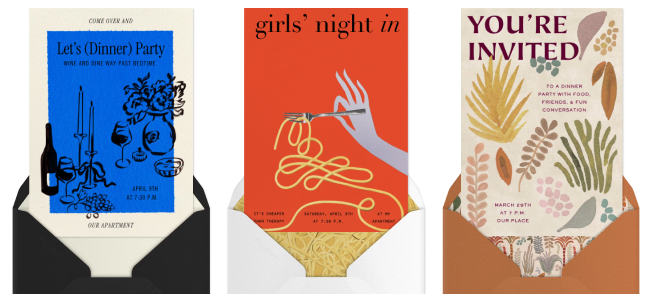How to host a French dinner party from start to fin with Eric Goujou
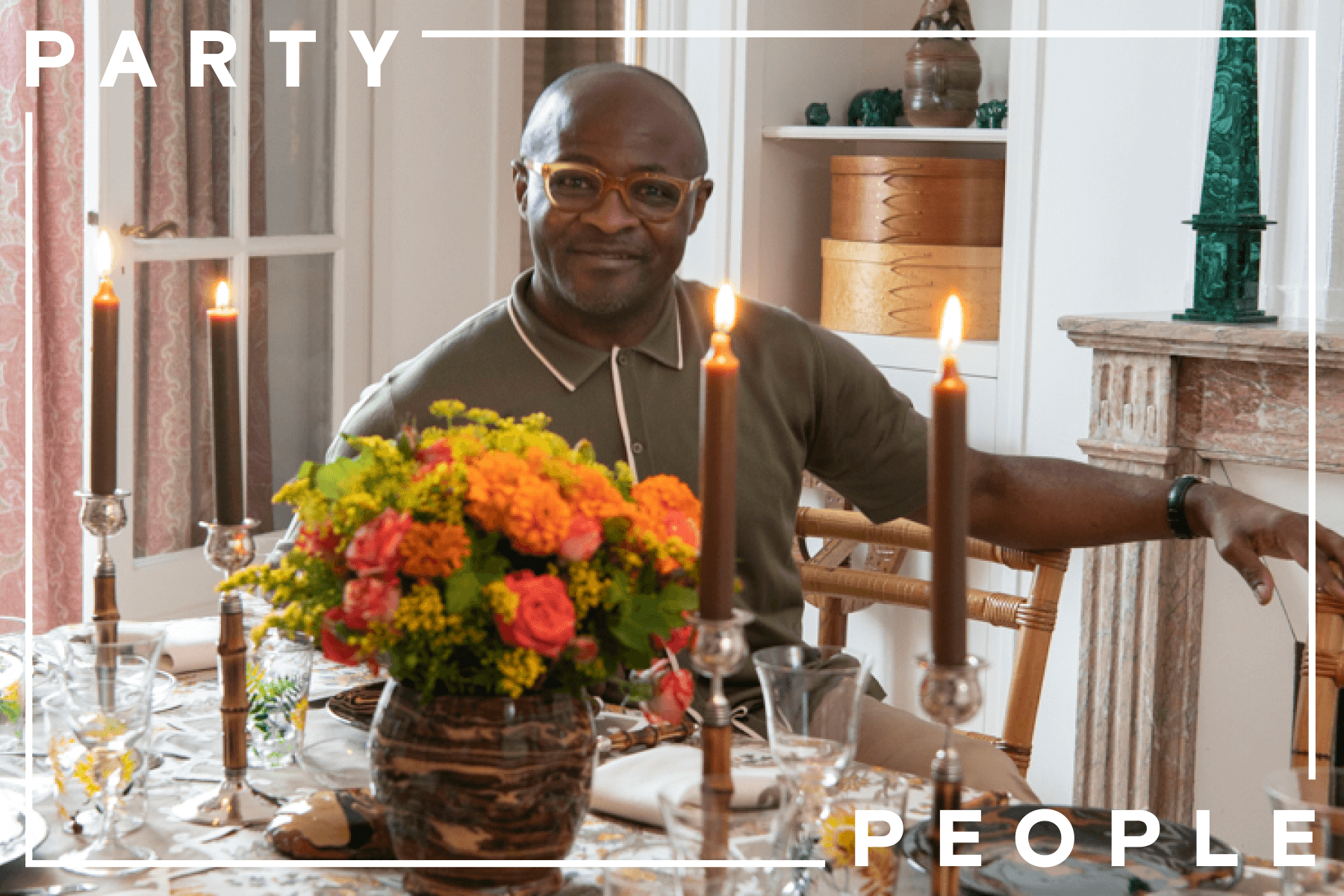
Trends tend to come and go with the seasons, and these days, every other week. But very few stick around long enough to intrigue and enrapture the general population for hundreds of years. French culture, an aesthetic in itself, has that unmatched influence and undeniable staying power.
Paris—France’s capital city, for those somehow uninitiated—has maintained its hallowed position at the peak of sophisticated culture since the 17th century thanks, in large part, to its fashion, finances, and of course, food. Home chefs the world over attempt to successfully imitate the French fête, serving up macarons and bœuf Bourguignonne in berets and Breton tops. But the truth is, la nourriture alone does not a Parisian party make. There are also the matters of table linens, flowers, music, and wine… so much wine.
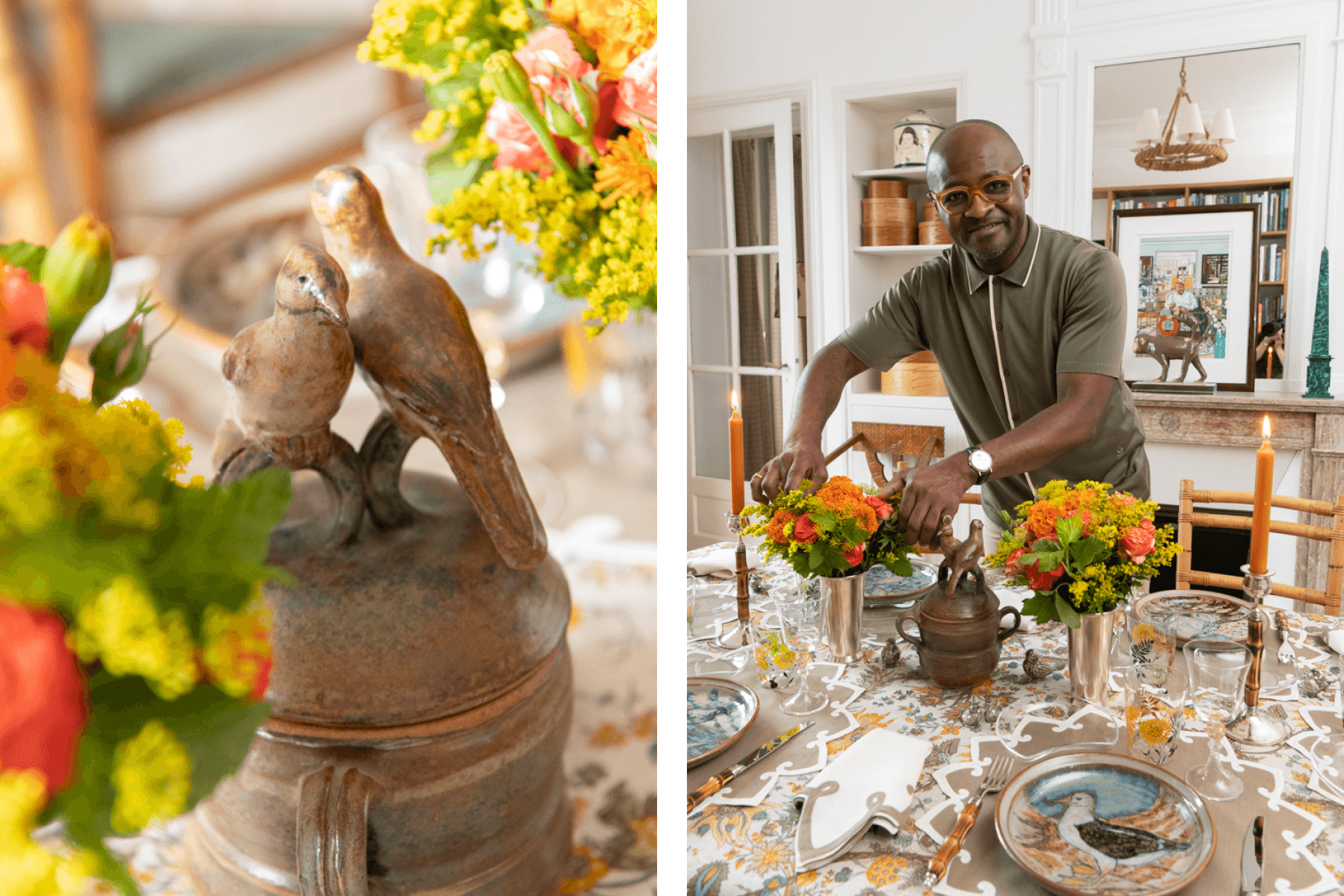
To learn the specifics of planning a dinner party la vraie française way, we consulted Eric Goujou, tastemaker and proprietor of renowned Parisian ceramics boutique La Tuile à Loup. A seasoned, meticulous host, M. Goujou sees each social event as a ritual—one he approaches with care, attention, and a sense of excitement for what will unfold throughout the evening (and after, too).
Read on for Eric Goujou’s guide to hosting a dinner party the French way from start to fin—beginning with la table.
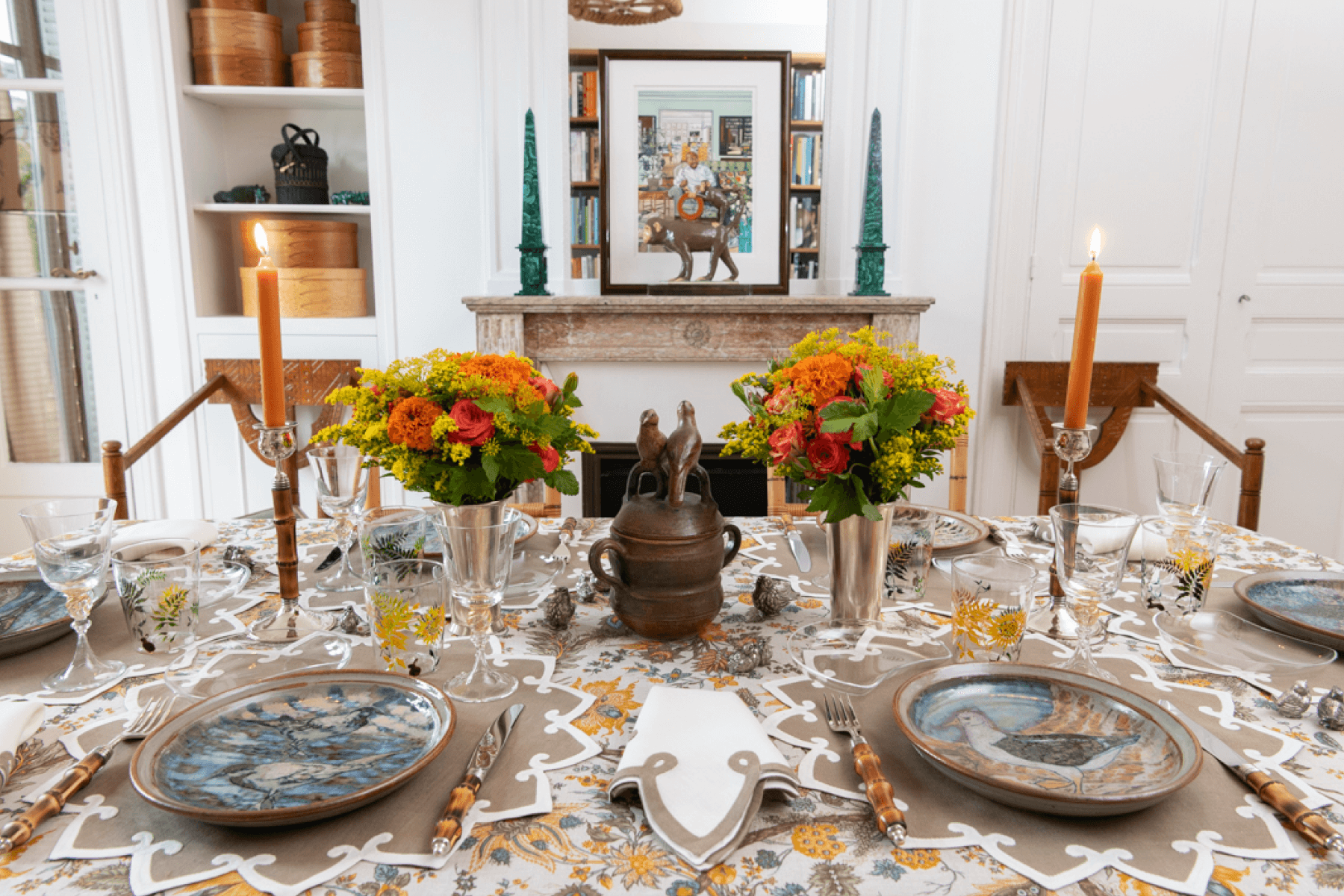
Table of Contents
1. Consider your table setting
“I reserve the act of table setting for myself. It begins with a decision to have family or friends over for a meal, once the guest list is firm. I consider the season, which, coupled with particular eating habits and/or restrictions of the majority, then settles what will be served. Now I can select the table settings, glass, and silverware.
I find it pleasing to choose plates that reflect one’s personality. At La Tuile à Loup, I advise my customers to be bold in what they choose and to look for an option with character. Most people will go for generic plates in a solid color because they believe it is best for serving food. The truth is that it is a trend that came from chefs—white plates are meant for restaurants. My advice is: you want to put your values or your aspirations into your choice of plates. It matters!”
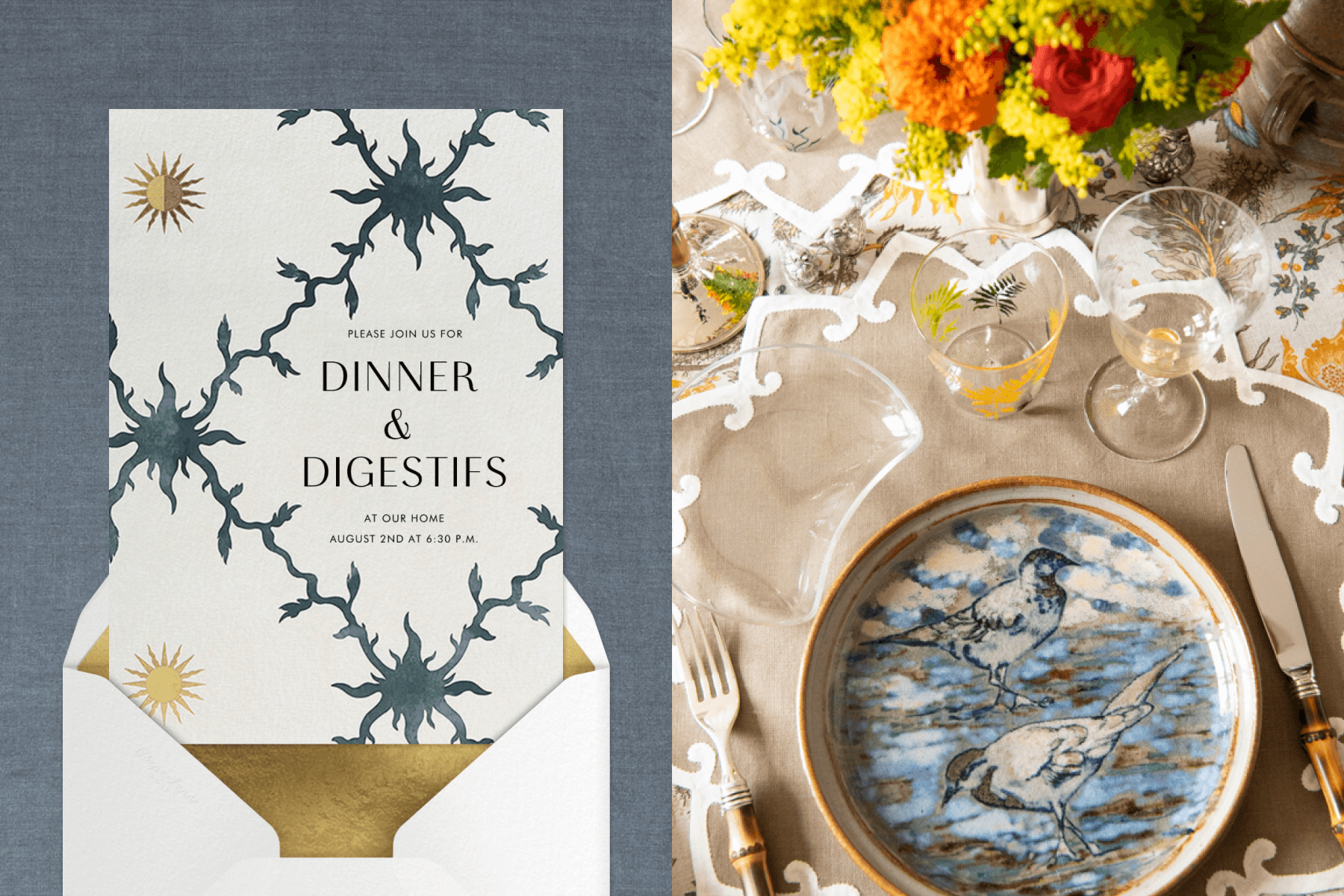
2. Decide what’s on the menu (and what’s not)
“Complicated dishes are not typical for a dinner party at home. It is not a restaurant. In general, the host will cook something they’re good at. Basically, you choose the best ingredients you can afford and you keep the preparation simple. It’s about the subtlety of the flavors. So, I will not try a new recipe when I am expecting guests.”
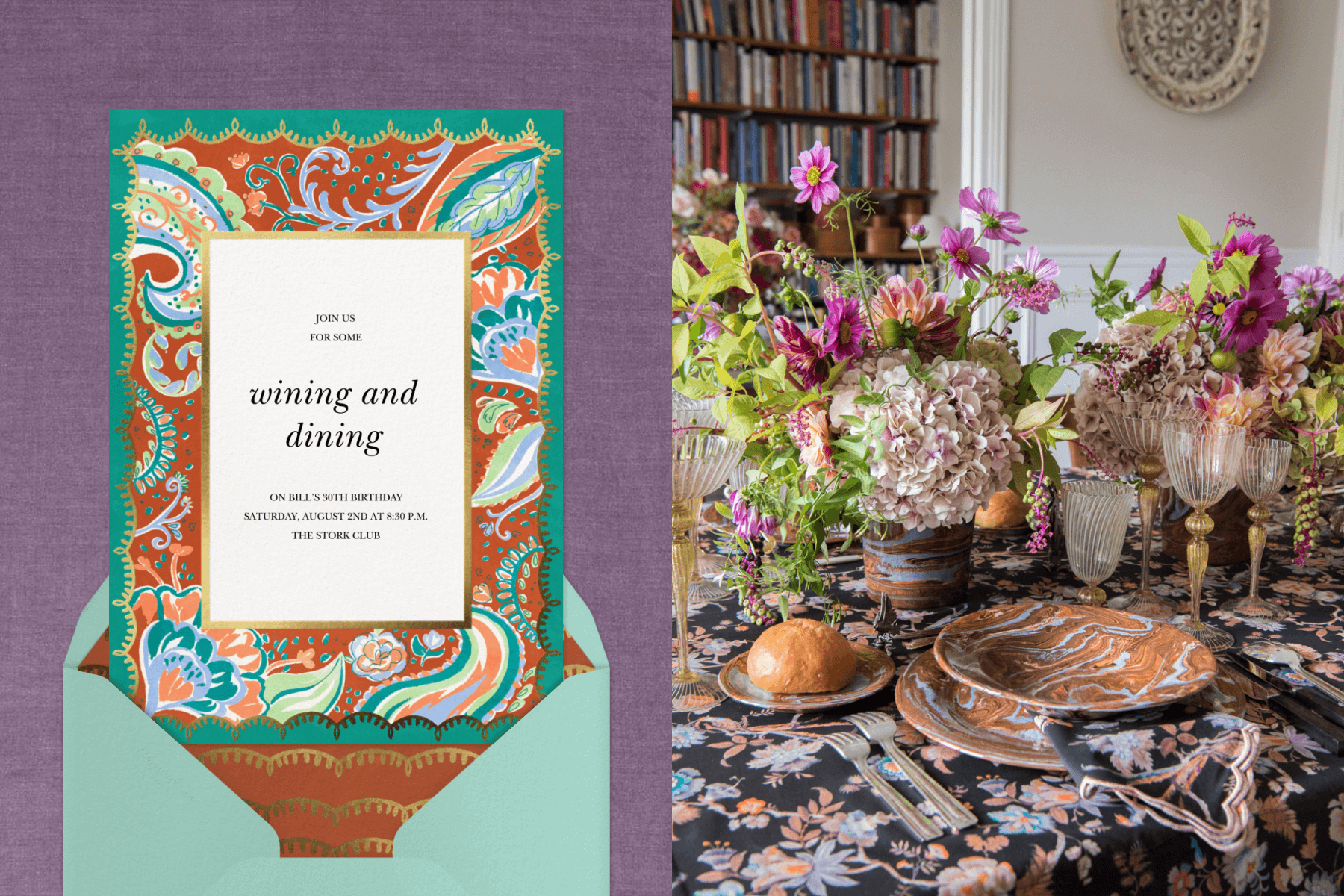
3. Pick flowers you adore
“Deciding on table linens comes next, followed by flower choice. In keeping with what is available at the florist, I may opt to celebrate the season or to complement the theme of my table, from lavish bouquets to sprays of wildflowers; from celebration to the simple reminders of nature’s beauty. At the tail end of the summer season, I see dried flowers, mustard color, and olive green. The bright colors have faded away, and my color palette is beginning to feel moody.
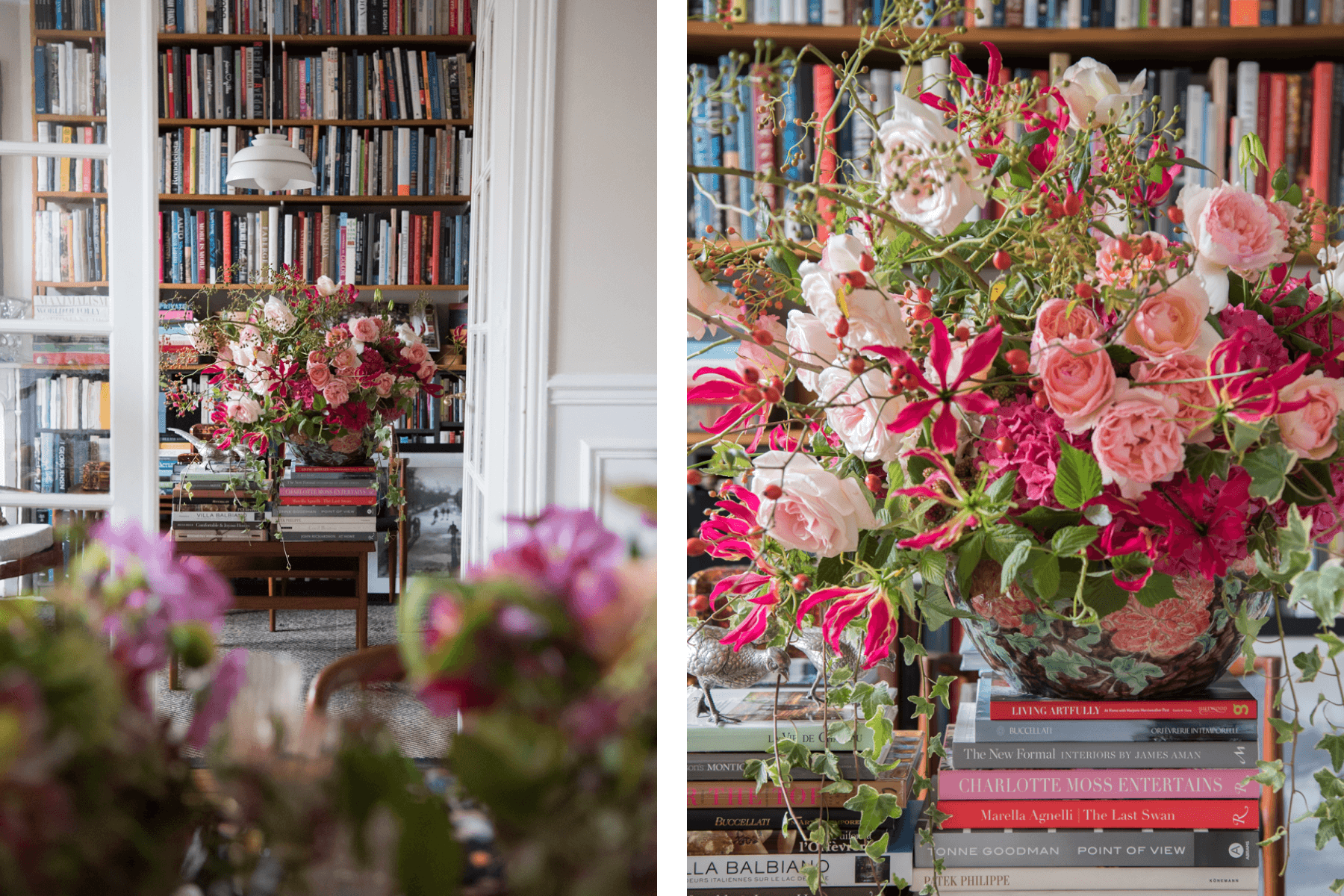
Flowers are a matter of personal taste. The harmony and the contrast of colors are important. On my own table, I don’t like artificial flowers or artificially colored flowers. But I wouldn’t be mad if I saw them on someone else’s.”
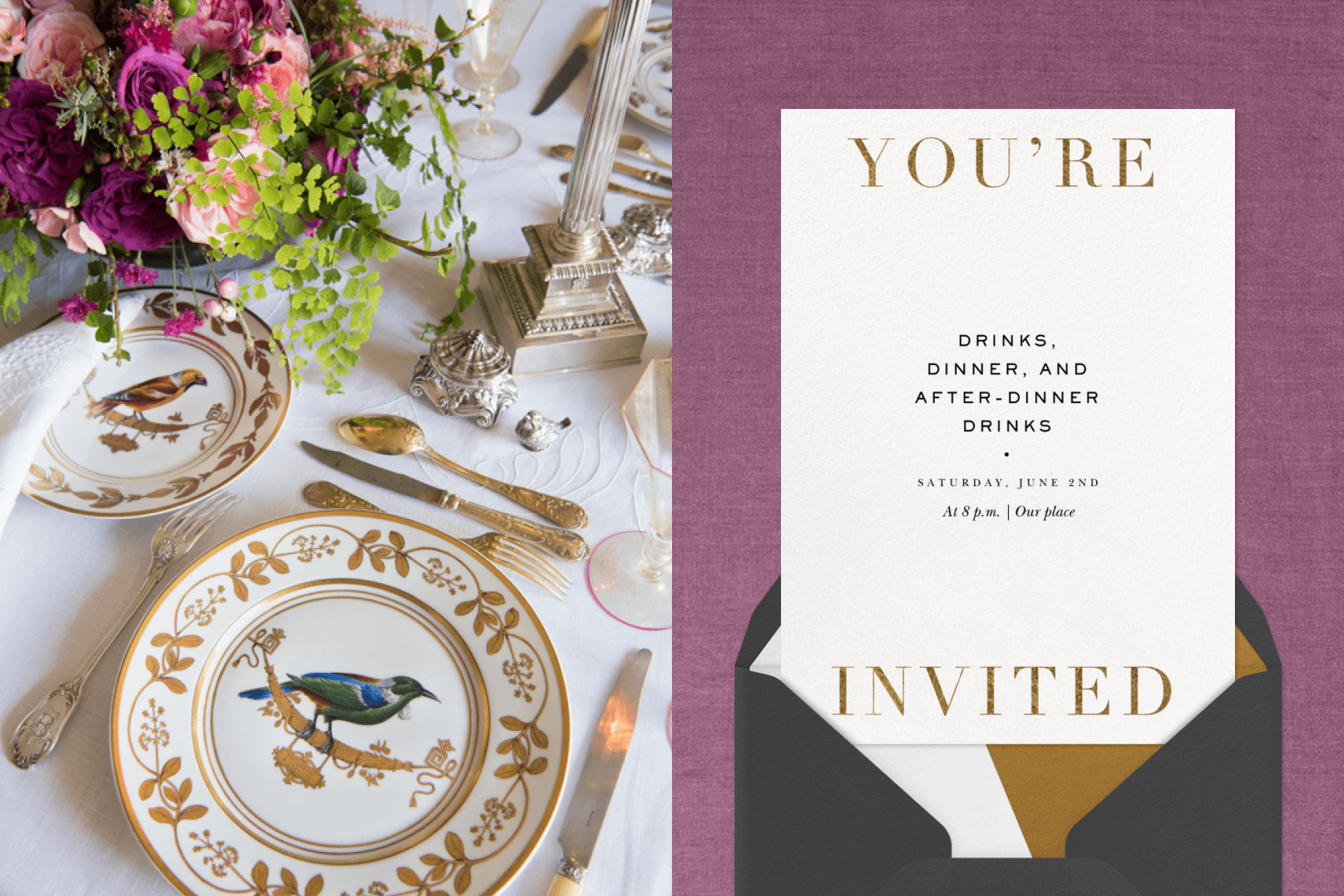
4. Set your table with intention
“When I set a table, I experience a particular brand of emotion unlike any other. Seeking to impart pleasure transports me. I get immense satisfaction from eliminating even the smallest crease as I iron a tablecloth, or folding symmetry into an elegantly pressed napkin.
The cloth is laid. Plates, knives, forks, spoons, and glasses find their places, joined by the table center and battery of amendments (salt and pepper cellars, wine coasters, candleholders, and a pitcher for water). I save adding the napkins for last unless I change my mind and decide on place name holders. Or decide at the last minute to change the tablecloth, or use entirely different dinnerware. Or to change everything. Once the table is ready I turn my attention to the meal.
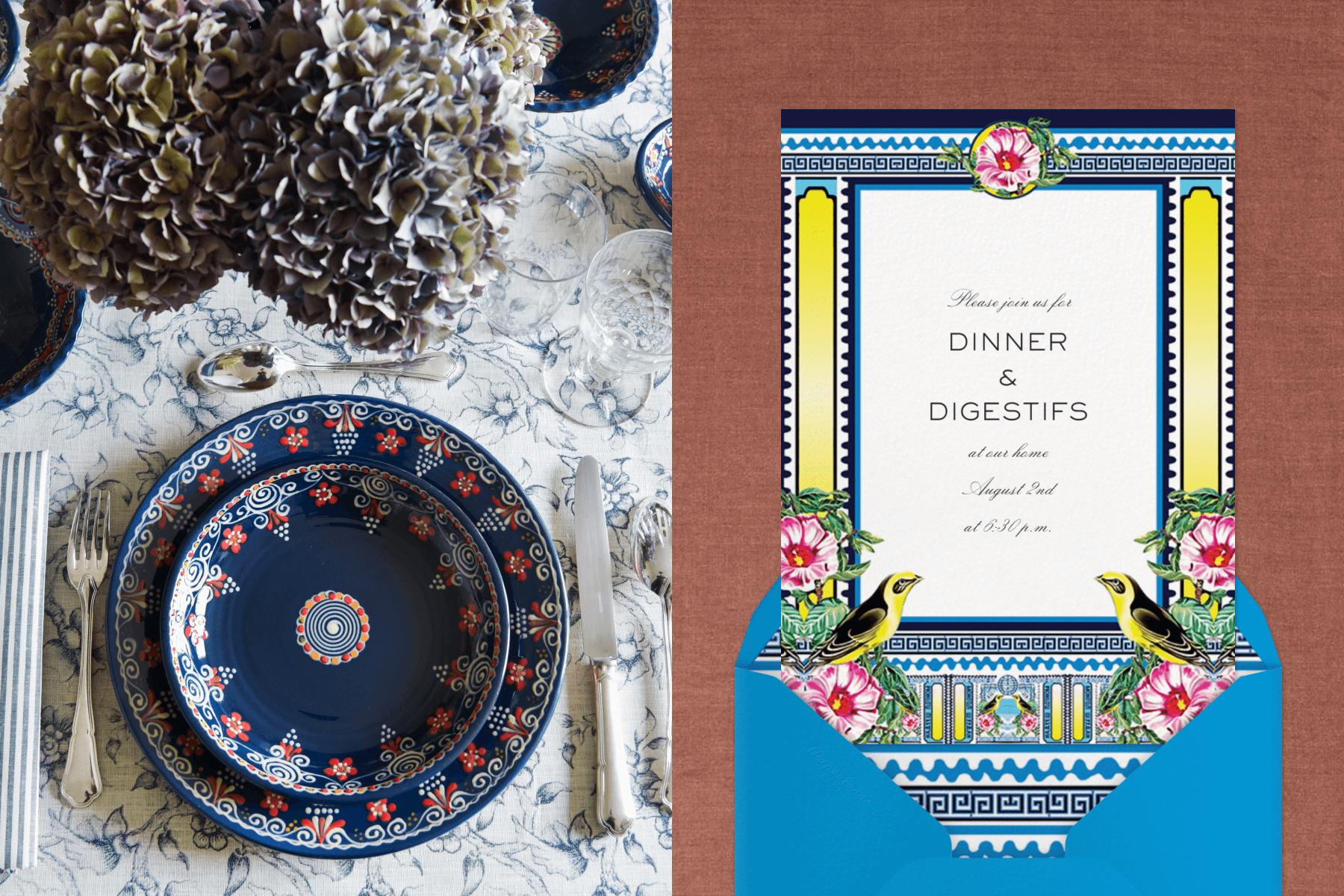
It is given that though the starters and desserts are sometimes ready-made, sacred French tradition dictates that I, as host, prepare the main dish, and to tradition, I defer. As the cooking nears readiness, so must I; and with a last inspection of my table, my attention shifts to the living room. I lay out a selection of French apéritifs and before-dinner nibbles, accompanied by cocktail napkins and coasters.
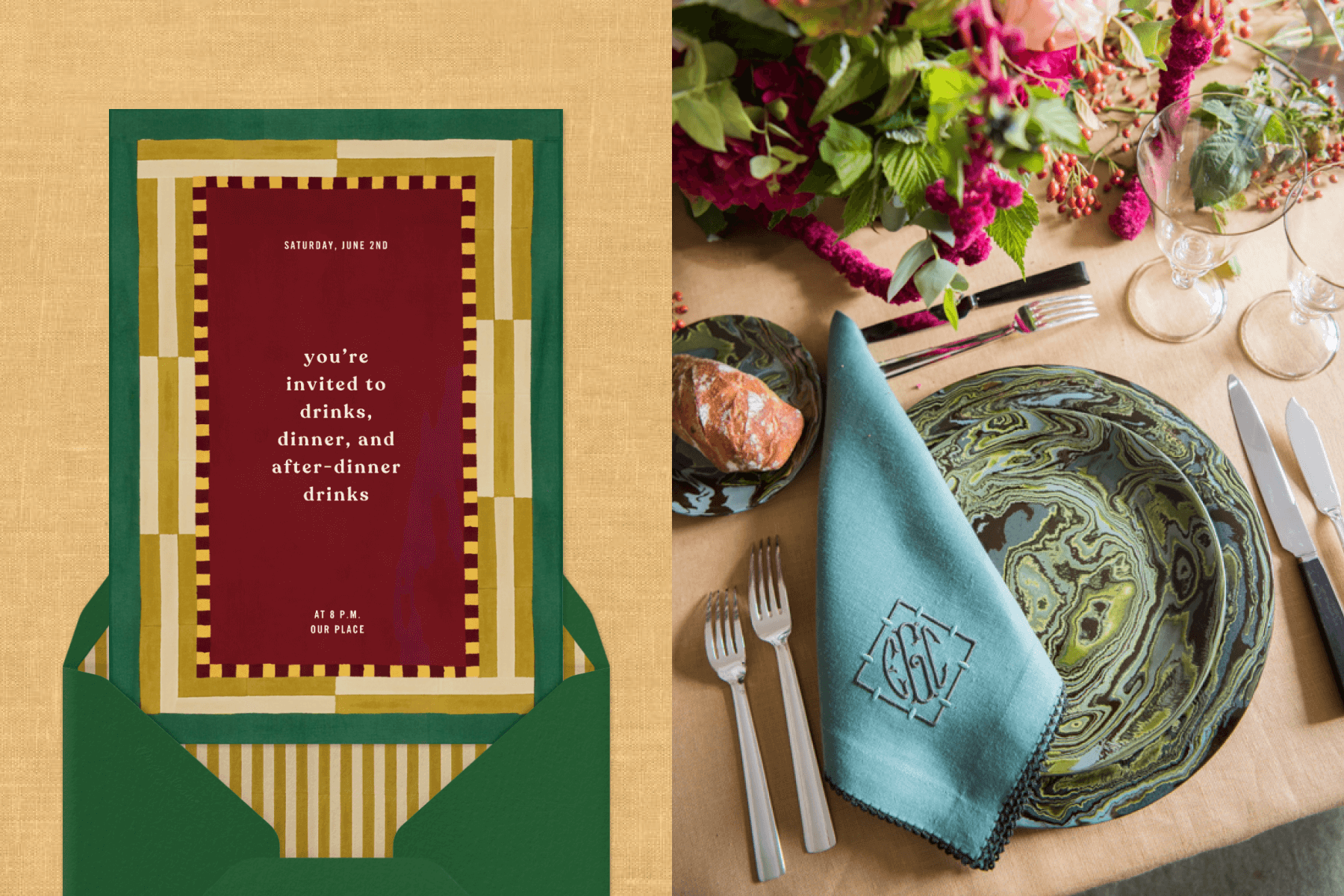
5. Give yourself some alone time
I need at least half an hour after I am done setting up. I take one last look at my outfit, and I need to go over my written checklist: ‘Will one of my guests need special attention?’ Then I review every detail. I spray my signature home fragrance around and put the music on (a mix of beautiful mellow songs to set the mood—I don’t want the music to be too loud or lively). I look inward to check on my emotions: how do I feel? I might need to look at the tablescape to fill myself with a positive mood, as I am getting ready ‘to go on stage.’
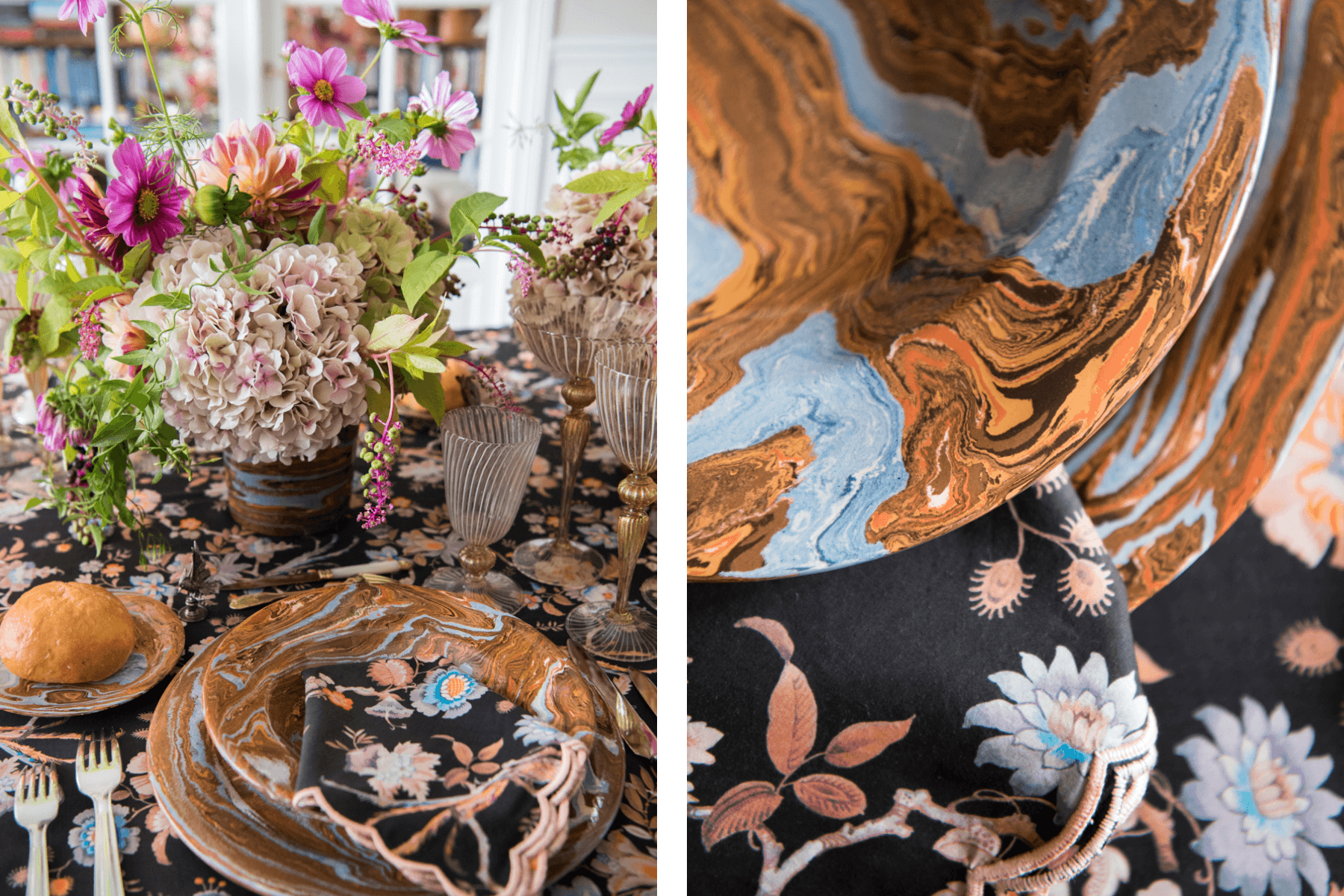
I hold match to votive candle as my guests begin to arrive and welcome them by serving drinks and appetizers.
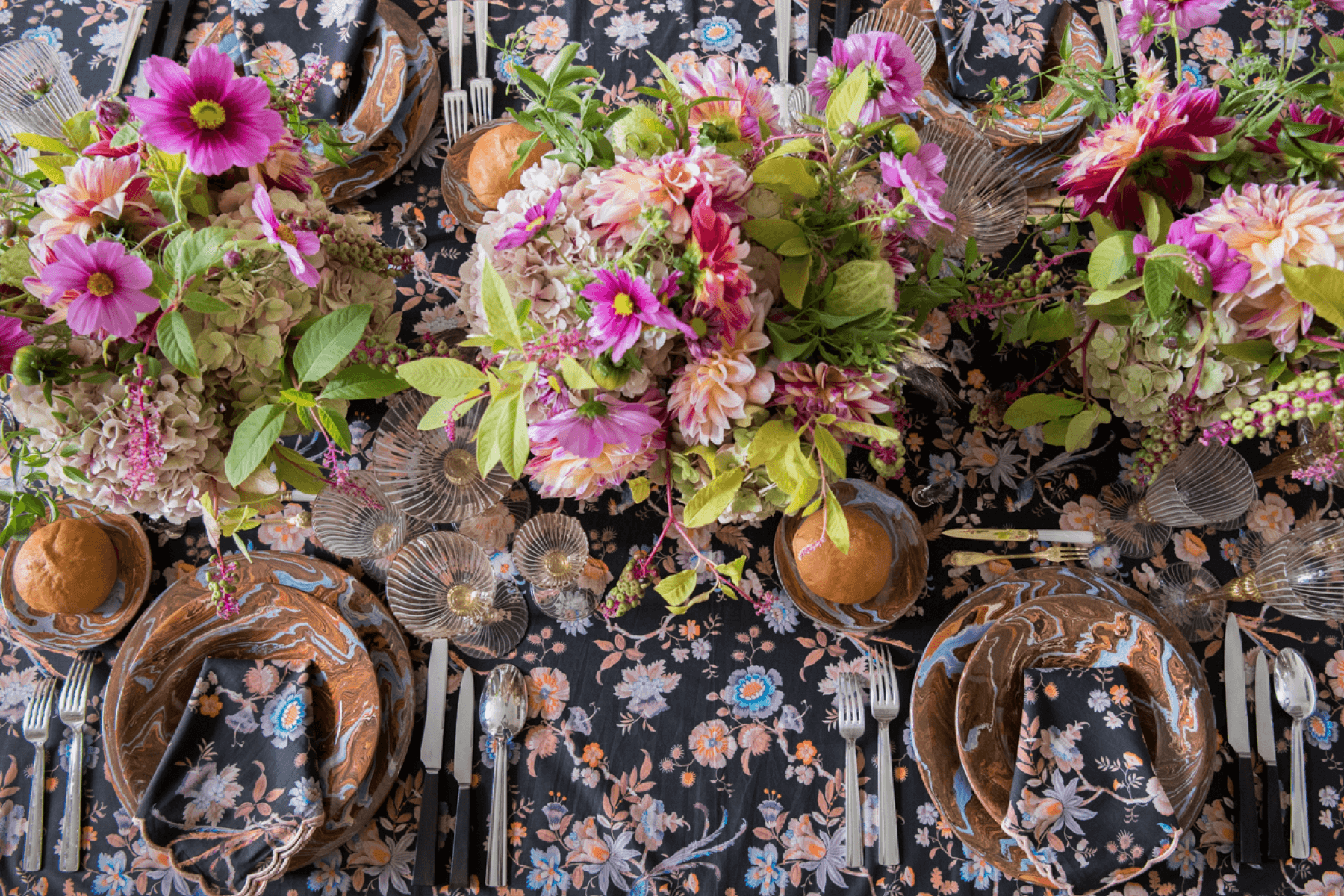
Whatever the season, I have a fondness for bottarga (pressed mullet roe) presented in smaller or greater quantity according to the number of vegetarians, who make up no small part of my group of close friends.”
6. Champagne is always a good idea
“When I entertain at home, I will always start with some Champagne (a blanc-de-blanc, which is a 100% chardonnay-based Champagne; or I will choose an ‘extra brut’ Champagne (low quantity of added sugar) paired with slices of dried goat cheese or gougères which are cheese puffs.
Serving Champagne is also the perfect way to begin while waiting for the latecomers. In general, your guests will arrive five to 15 minutes after the given time and should be ready to sit down for three to five hours. We like to take time around the table in France.
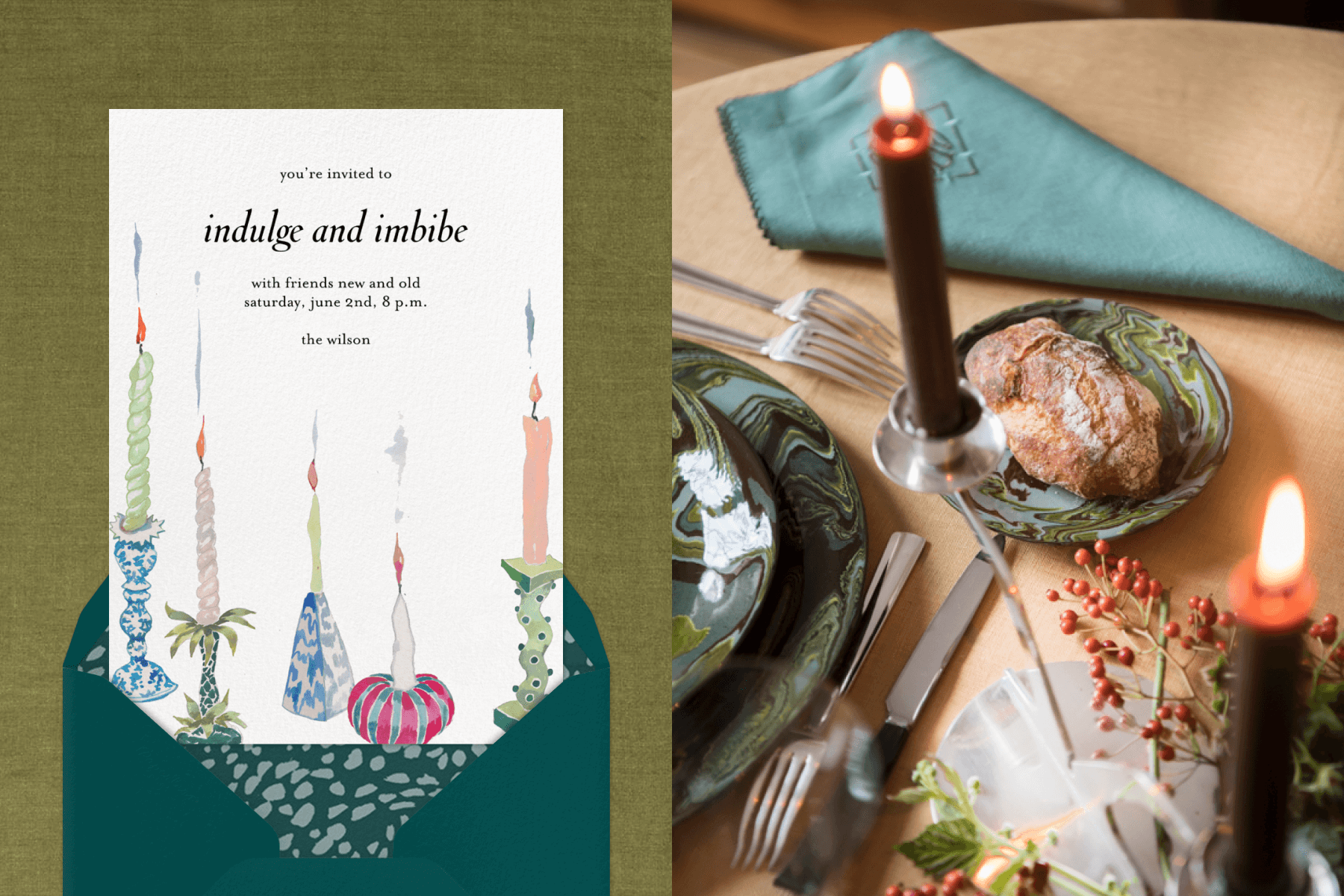
Just before moving to the table, I light the dinner candles and fill the water glasses—which, incidentally, identifies them as such among sometimes two or three different glasses next to each place setting. And the festivities begin. The preparatory phase is quickly forgotten, as conviviality is neither a product of table dressing or menu, but the fine-tuning of myriad elements that set alight a desire for celebration. The table is, of course, lovely; the meal appropriate, and the wines superb…”
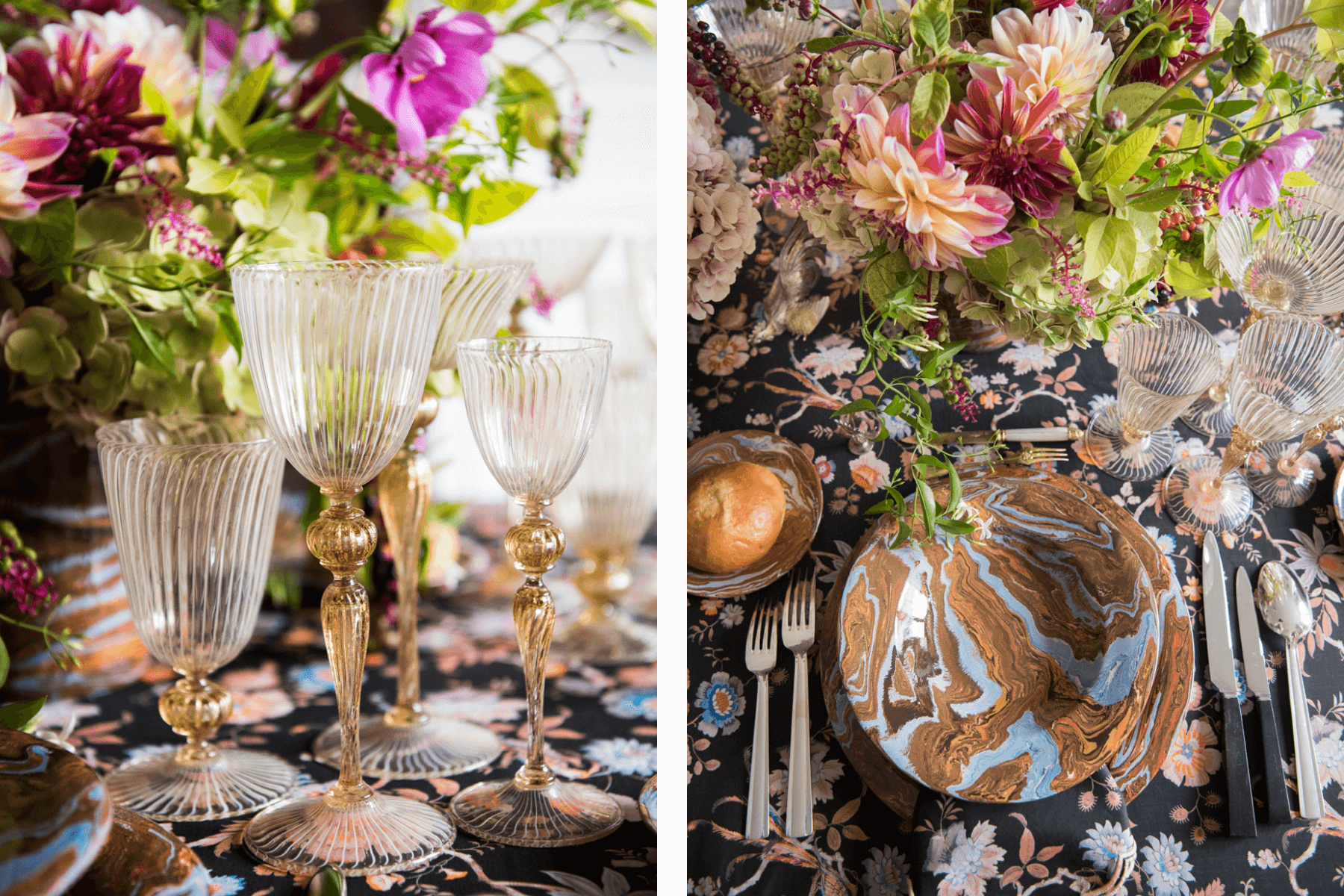
7. Select your wine(s)
“There is a progression in the choice of wines. The pick is either with the main course or with the cheese course. That’s when I will serve the exceptional wine, only one of which is served throughout the party. After this, we go back to a medium-body wine for the dessert course.
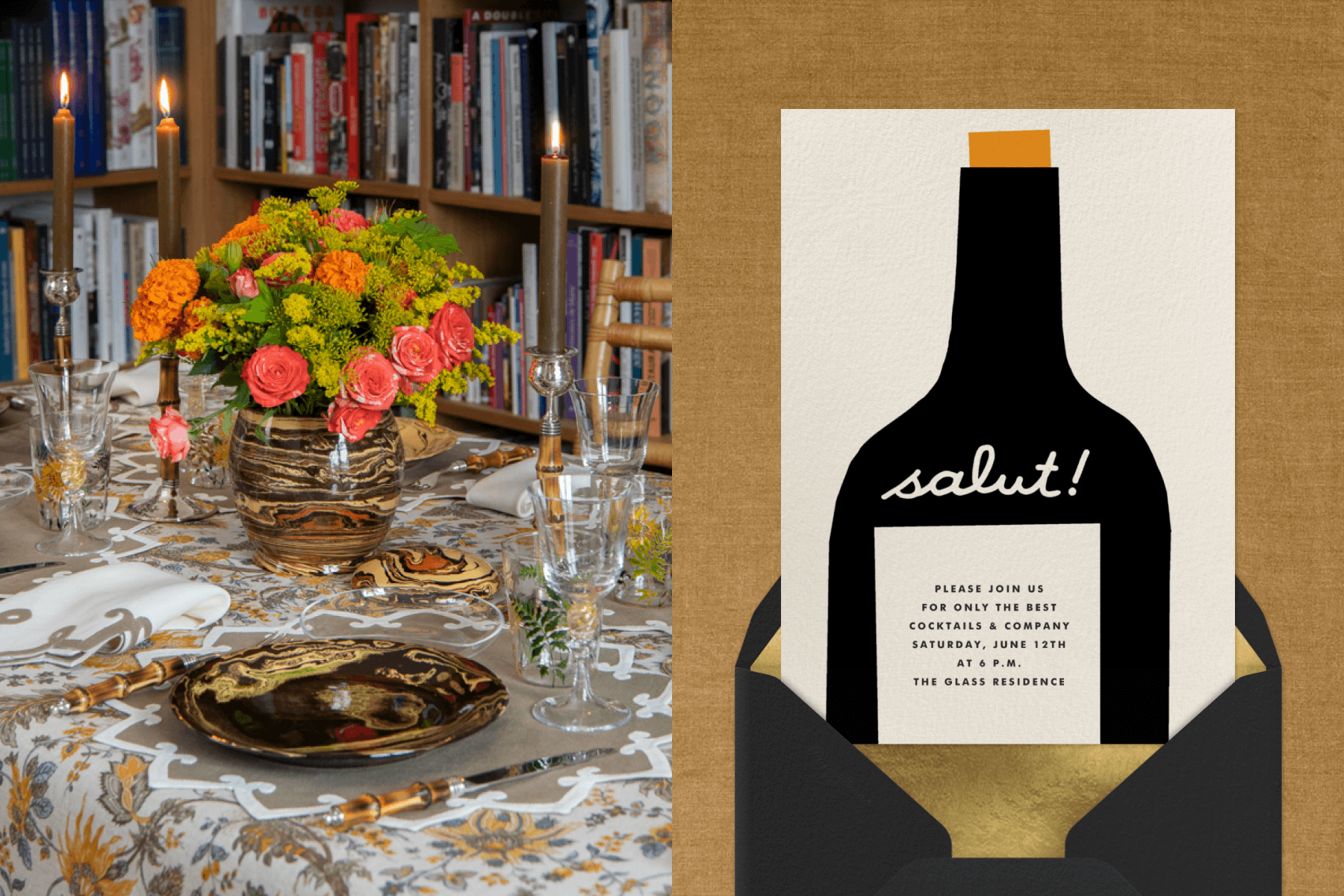
…Yet this is all of secondary importance. What matters most is partaking in a good supper with good company. The quarrels, the twinkle of an eye, a raised voice, the anecdotes, or reports on the latest shows or of travels recently taken, are as act upon act of a play at the theater. The dishes succeed one another; a different wine follows the next. I keep a close eye on both glasses and courses to be certain each guest is thoroughly satisfied all the way through to the final act: dessert. Occasionally, after a move to the living room, conversations continue over liqueurs or a fragrant cup of herbal tea.”
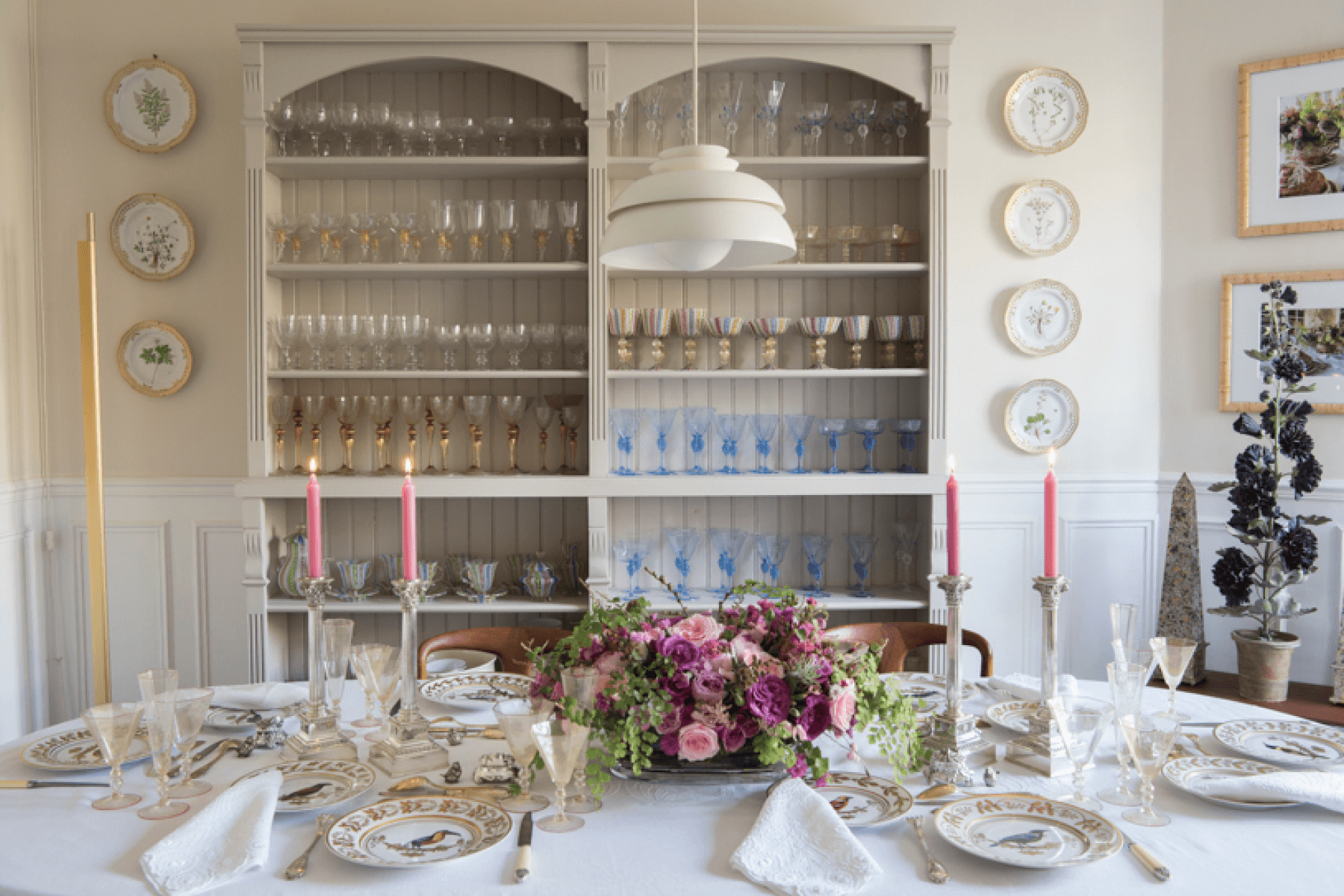
8. End on a thoughtful note
“The curtain falls and the guests depart, signaling the commencement of a ritual as important to me as the dinner itself. I change the background music to a melancholy playlist—something dramatic like my favorite Maria Callas opera arias, a British band called Tindersticks, or my playlist of songs by Brazilian singer Caetano Veloso, and extinguish the candles for this last fragment of festivity.
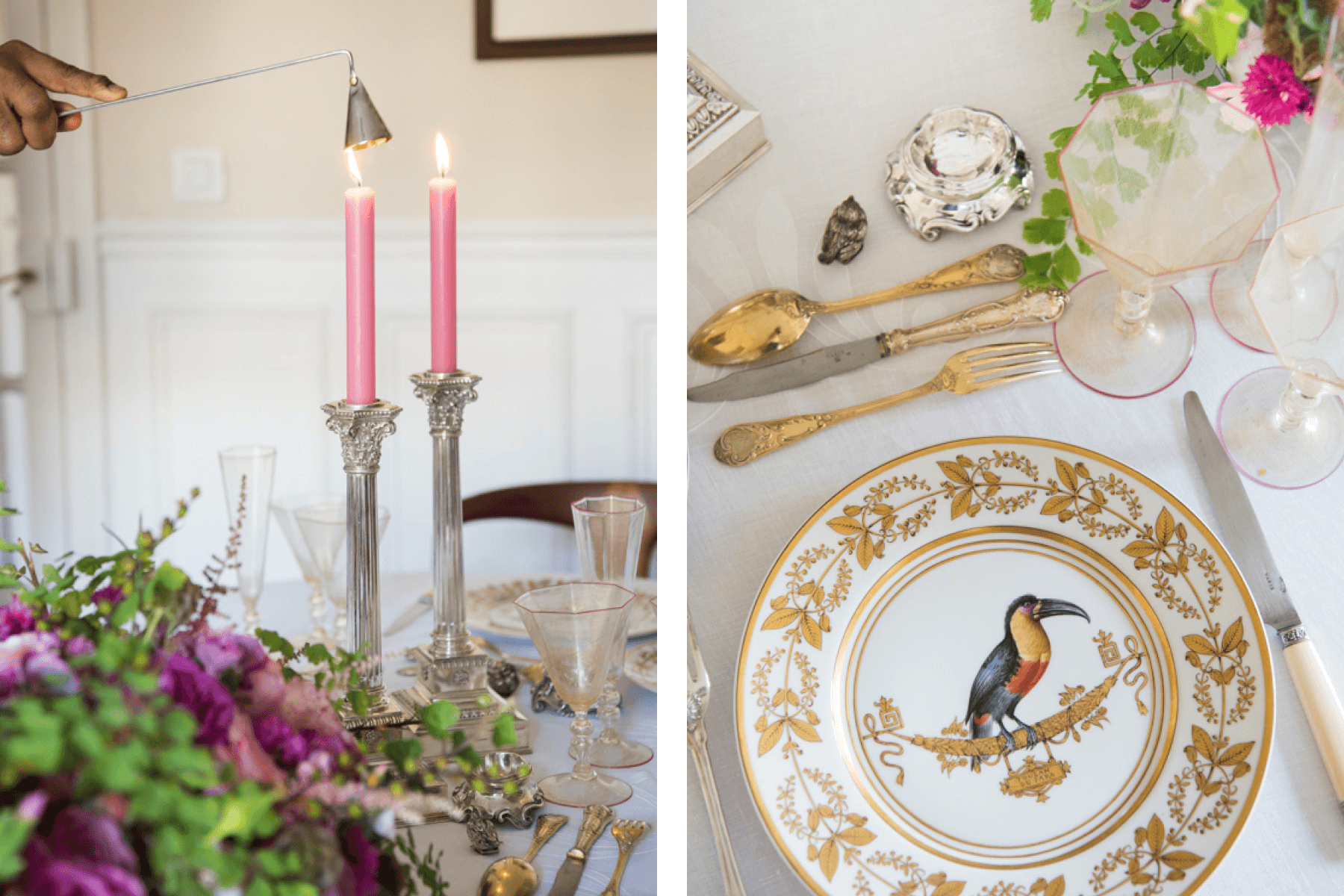
Traces of end-of-evening scents—a blend of eaux de toilettes, cooked foods, and candle smoke—drift among the disorder of the now abandoned table. Napkins lie perched on chair seats, crumpled upon the table, or abandoned next to chairs on the floor. The whole makes for a tableau that never fails to move me; this ephemeral moment of communion; this happiness of company shared, having set the world to rights. It is both comforting and essential.
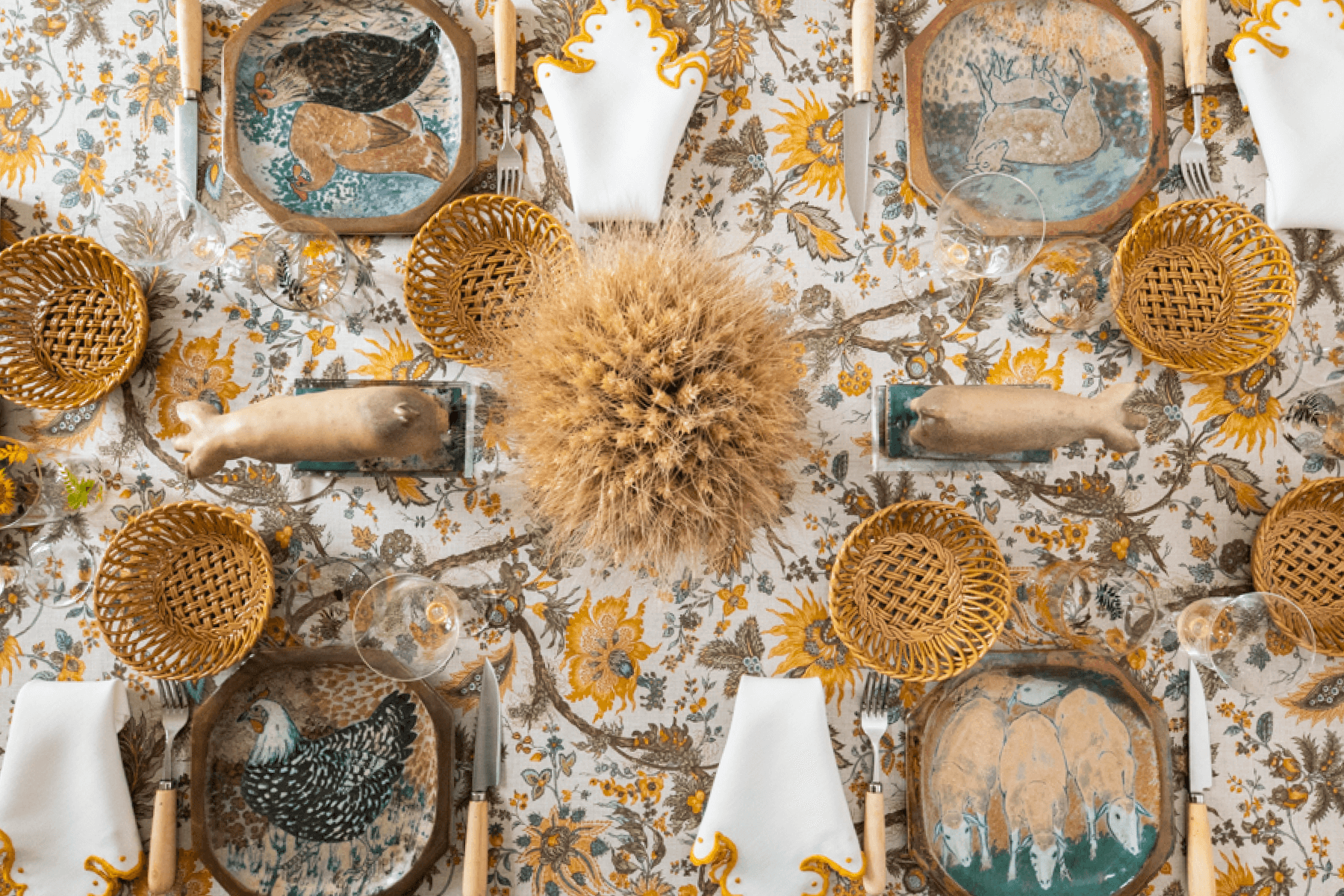
My table setting was but a pretext. But a table beautifully dressed with love and care is indeed an invitation to joy, felicity, and conviviality.”
Eric Goujou’s French dinner party menu
Apéritif
In France, serving cocktails or offering multiple options for the apéritif or pre-dinner cocktail is not typical.
- Food: Slices of hard goat cheese, or mini-dried goat cheeses
- Drink: Champagne extra brut
Starter
For the first course, serve seafood, fish, or a variety of little Mediterranean salads.
- Food: Heirloom tomato salad (dressed with garlic, fleur de sel, olive oil, a dash of vinegar, and basil leaves) served with fresh whole grain bread.
- Drink: Carry on with more Champagne, or switch to a simple light white wine, like white côtes de Provence.
Main course
Choose a meat-based dish (leg of lamb for instance). If my vegetarian friends are present, I will cook a flavorful vegetable-based dish.
- Food: Oven-roasted lamb chops with summer vegetables (zucchini, eggplant, bell peppers, fresh aromatic herbs) and some potatoes.
- Drink: A Burgundy Pinot Noir (red wine). I would choose a Chambolle Musigny. This would be the main wine, so it is the pick of the progression.
Salad or cheese course (optional)
You might serve a green salad which in France comes either at the beginning of the meal or after the main course. The cheese course is optional, especially nowadays. Combine them with a green salad on the side of the cheese course.
- Food: A mesclun mix salad with a very simple vinaigrette (olive oil, red wine vinegar, fresh black pepper, half a shallot)
- Drink: The most complex of the wines for the evening: An old vintage of red wine, for instance—probably a Côte-du-Rhône.
Dessert
It’s perfectly acceptable to serve a dessert from your favorite local boulangerie.
- Food: Plum tart or chocolate-based dessert
- Drink: With a tart, sweet apple cider, or a white Alsace wine, like a late harvest Gewurztraminer. For chocolate, another red wine.
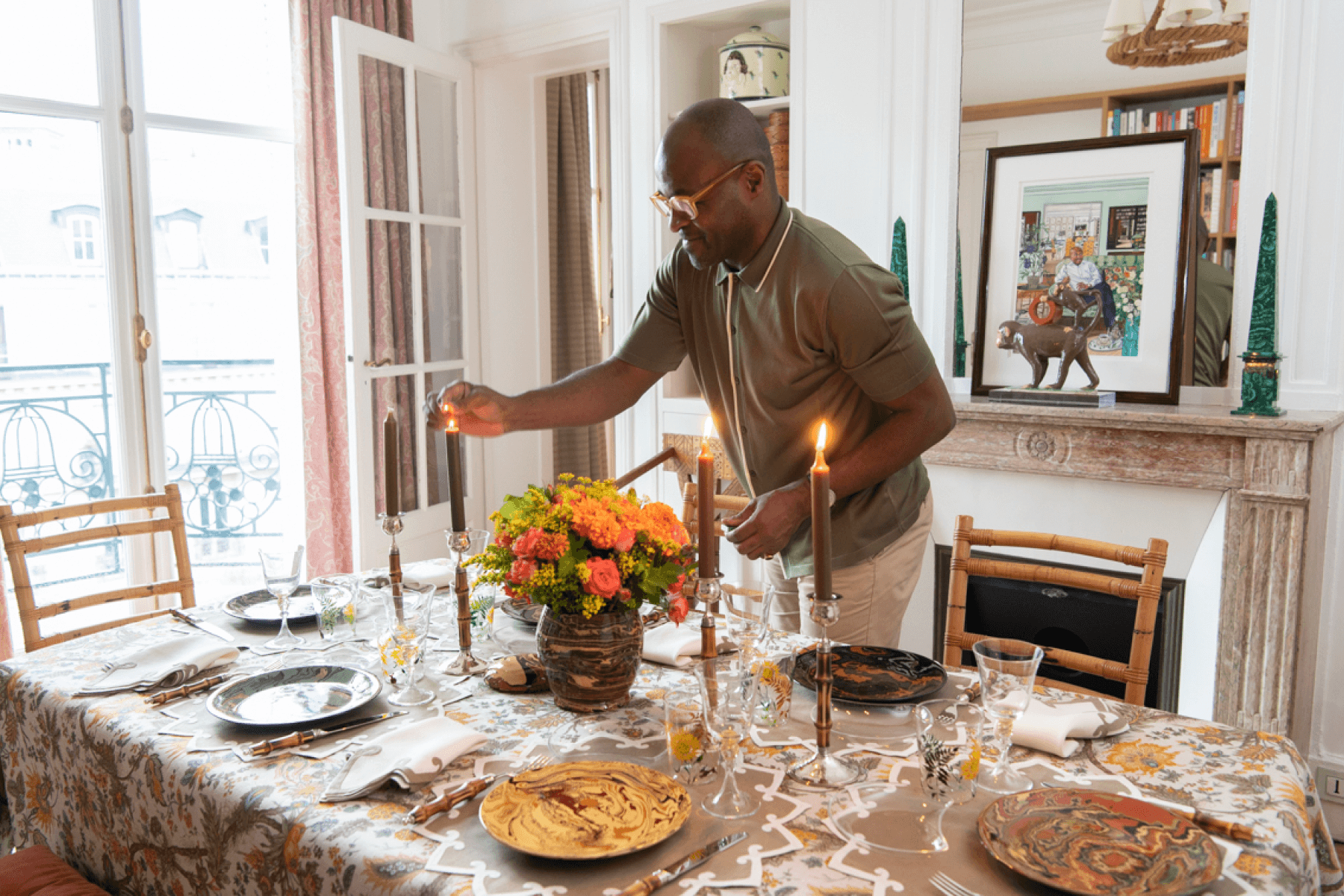
Merci beaucoup, Eric! Interested in hosting your own Parisian dinner party? Find beautiful, sophisticated invitations (that allow you to request your guests’ dietary needs!) right here.
Bring everyone together for a delicious meal with charming invitations you can email, text, or share. 